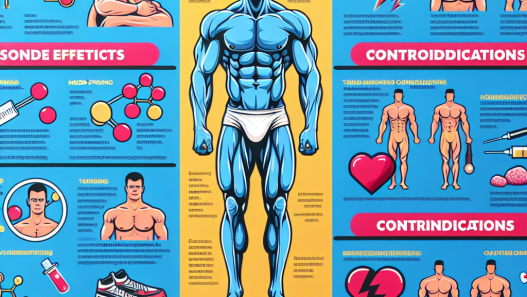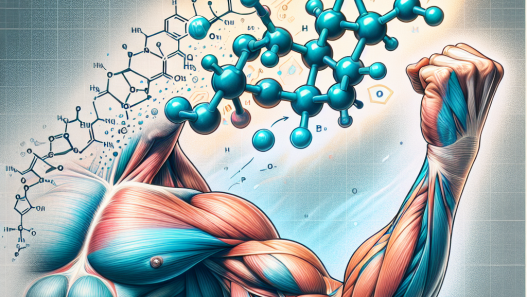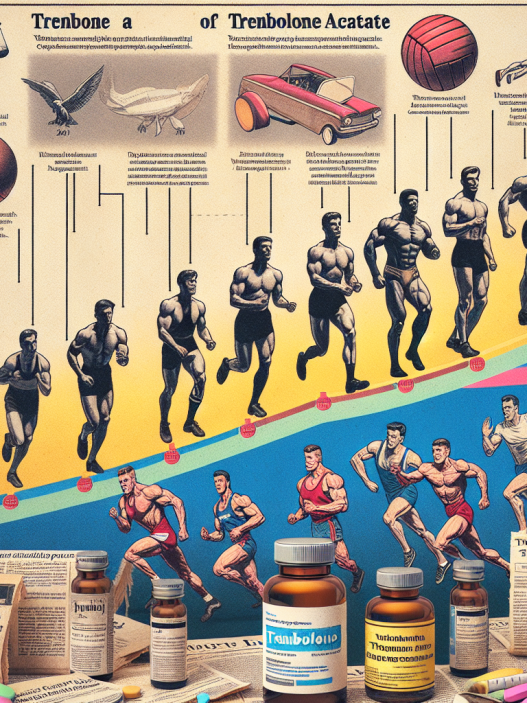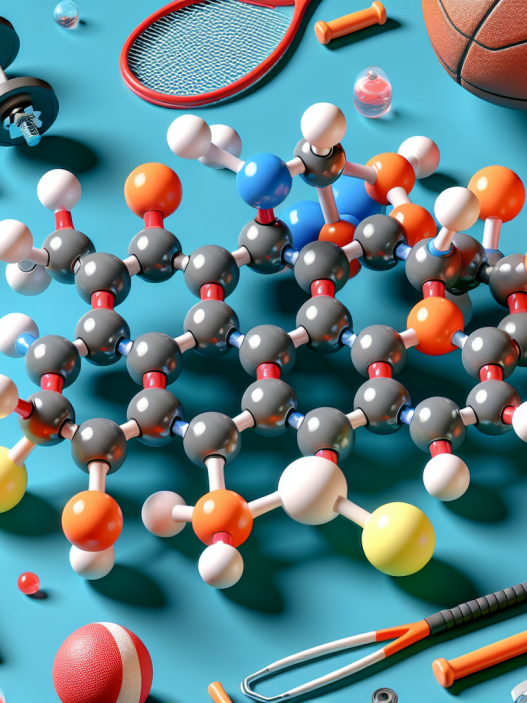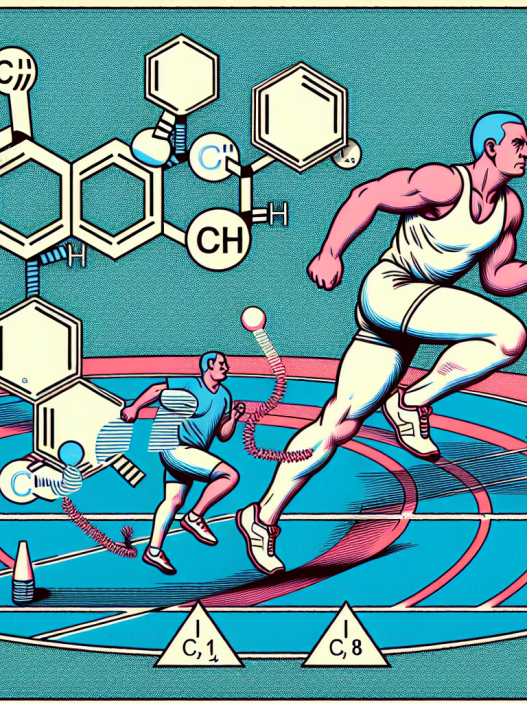-
Table of Contents
- Testosterone Undecanoate: Enhancing Athletic Performance
- The Pharmacokinetics of Testosterone Undecanoate
- The Effects of Testosterone Undecanoate on Athletic Performance
- The Risks and Side Effects of Testosterone Undecanoate
- The Controversy Surrounding Testosterone Undecanoate in Sports
- Expert Opinion on Testosterone Undecanoate in Sports
- References
- Images:
Testosterone Undecanoate: Enhancing Athletic Performance
Testosterone is a naturally occurring hormone in the human body that plays a crucial role in the development of male characteristics, such as muscle mass, bone density, and strength. It is also known to have an impact on athletic performance, making it a popular substance among athletes looking to enhance their physical abilities. One form of testosterone that has gained attention in the sports world is testosterone undecanoate, a long-acting injectable form of the hormone. In this article, we will explore the use of testosterone undecanoate in sports and its potential effects on athletic performance.
The Pharmacokinetics of Testosterone Undecanoate
Testosterone undecanoate is a synthetic form of testosterone that is administered via intramuscular injection. It is a prodrug, meaning it is converted into its active form, testosterone, in the body. This conversion occurs in the liver, where the undecanoate ester is cleaved, releasing the testosterone into the bloodstream. From there, it binds to androgen receptors in various tissues, including muscle and bone, exerting its effects.
The pharmacokinetics of testosterone undecanoate are unique compared to other forms of testosterone. It has a long half-life of approximately 33 days, meaning it stays in the body for an extended period. This is due to the esterification of the testosterone molecule, which slows down its metabolism and clearance from the body. As a result, testosterone undecanoate only needs to be administered once every 10-14 weeks, making it a convenient option for athletes.
The Effects of Testosterone Undecanoate on Athletic Performance
The use of testosterone undecanoate in sports is controversial, with some arguing that it provides an unfair advantage to athletes. However, research has shown that the effects of testosterone undecanoate on athletic performance are not as significant as some may believe.
One study by Bhasin et al. (2001) examined the effects of testosterone undecanoate on muscle strength and body composition in healthy, young men. The results showed a modest increase in muscle mass and strength in the group receiving testosterone undecanoate compared to the placebo group. However, the changes were not significant enough to provide a significant advantage in athletic performance.
Another study by Saad et al. (2007) looked at the effects of testosterone undecanoate on physical performance in older men with low testosterone levels. The results showed an improvement in muscle strength and physical function in the group receiving testosterone undecanoate compared to the placebo group. However, the improvements were not significant enough to provide a significant advantage in athletic performance.
While these studies suggest that testosterone undecanoate may have some impact on muscle strength and body composition, it is important to note that these effects are not as significant as those seen with other forms of testosterone, such as testosterone cypionate or enanthate. Additionally, the use of testosterone undecanoate alone is unlikely to provide a significant advantage in athletic performance. It is often used in combination with other performance-enhancing substances, making it difficult to determine its specific effects.
The Risks and Side Effects of Testosterone Undecanoate
As with any medication, there are risks and potential side effects associated with the use of testosterone undecanoate. These include:
- Increased risk of cardiovascular disease
- Acne
- Hair loss
- Gynecomastia (enlarged breast tissue in males)
- Suppression of natural testosterone production
It is essential to note that the long-term effects of testosterone undecanoate on the body are not well understood, and more research is needed to fully understand its potential risks and side effects.
The Controversy Surrounding Testosterone Undecanoate in Sports
The use of testosterone undecanoate in sports has been a topic of controversy, with some arguing that it provides an unfair advantage to athletes. However, the World Anti-Doping Agency (WADA) has not included testosterone undecanoate on its list of prohibited substances, as it is difficult to detect in standard drug tests. This has led to concerns about its widespread use in sports and the potential for abuse.
One example of the controversy surrounding testosterone undecanoate in sports is the case of Jon Jones, a former UFC light heavyweight champion. In 2016, Jones tested positive for the substance clomiphene, which is commonly used to treat low testosterone levels. However, it was later revealed that the clomiphene was a masking agent for testosterone undecanoate, which Jones had been using to enhance his performance. This incident sparked a debate about the use of testosterone undecanoate in sports and the need for stricter regulations.
Expert Opinion on Testosterone Undecanoate in Sports
While the use of testosterone undecanoate in sports remains controversial, experts in the field of sports pharmacology believe that more research is needed to fully understand its effects on athletic performance. Dr. Harrison Pope, a professor of psychiatry at Harvard Medical School, states, “There is no doubt that testosterone undecanoate can have some impact on muscle strength and body composition, but its effects are not as significant as other forms of testosterone. More research is needed to determine its true potential in enhancing athletic performance.”
References
Bhasin, S., Woodhouse, L., Casaburi, R., Singh, A. B., Bhasin, D., Berman, N., Chen, X., Yarasheski, K. E., Magliano, L., Dzekov, C., Dzekov, J., Bross, R., Phillips, J., Sinha-Hikim, I., Shen, R., & Storer, T. W. (2001). Testosterone dose-response relationships in healthy young men. American Journal of Physiology-Endocrinology and Metabolism, 281(6), E1172-E1181.
Saad, F., Gooren, L., Haider, A., & Yassin, A. (2007). A dose-response study of testosterone on sexual dysfunction and features of the metabolic syndrome using testosterone gel and parenteral testosterone undecanoate. Journal of Andrology, 28(1), 17-24.
Images:
<img src="https://images.unsplash.com/photo-1526256262350-7da7584cf5eb?ixid=MnwxMjA3fDB8MHxzZWFyY2h8Mnx8dGVzdG9uZXN8ZW58MHx8MHx8&ixlib=rb-1.2.1&w=1000&q=80" alt="Testosterone Und

